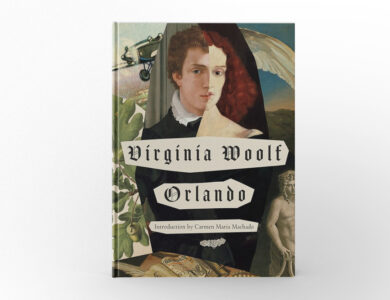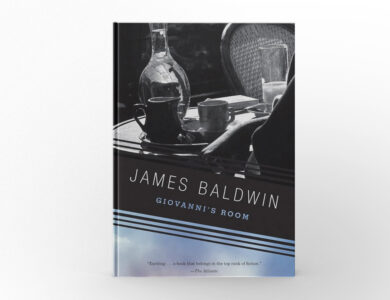Stone Butch Blues by Leslie Feinberg
The Powerful Narrative of “Stone Butch Blues” by Leslie Feinberg

“Stone Butch Blues” by Leslie Feinberg is a groundbreaking novel that explores themes of gender identity, resilience, and the struggle for acceptance. This semi-autobiographical work follows the life of Jess Goldberg, a stone butch lesbian navigating the complexities of identity and society in the mid-20th century.
Author’s Background
Leslie Feinberg, born in 1949 in Kansas City, Missouri, was a prominent transgender activist, author, and speaker. Feinberg’s work has been instrumental in advancing the understanding of transgender issues and advocating for LGBTQ+ rights. Feinberg’s own experiences as a transgender individual deeply influenced their writing, making “Stone Butch Blues” a poignant and authentic exploration of gender and identity. Feinberg’s other notable works include “Transgender Warriors” and “Trans Liberation: Beyond Pink or Blue.”
In Depth Summary
“Stone Butch Blues” begins with Jess Goldberg growing up in a working-class Jewish family in Buffalo, New York. From a young age, Jess feels different and struggles with societal expectations of femininity. Jess’s parents, unable to understand their child’s gender nonconformity, eventually institutionalize Jess in a psychiatric ward. This traumatic experience marks the beginning of Jess’s journey of self-discovery and resilience.
As a teenager, Jess finds solace in the underground gay bars of Buffalo, where she meets a community of drag queens, butches, and femmes. Jess is taken under the wing of Butch Al and Jacqueline, who teach her about lesbian culture and the roles within it. However, this newfound sense of belonging is shattered when the bar is raided by the police, and Jess is left to navigate the harsh realities of life as a butch lesbian.
Jess’s life is marked by a series of struggles and triumphs. She faces harassment and violence from both society and law enforcement, but she also finds moments of love and connection. Jess’s relationship with Theresa, a fellow factory worker, becomes a central part of her life. Despite the challenges they face, their bond provides Jess with a sense of stability and hope.
The novel’s climax occurs when Jess decides to undergo hormone therapy and live as a man. This decision brings new challenges and opportunities, as Jess grapples with the complexities of gender identity and the reactions of those around her. The story concludes with Jess finding a sense of peace and acceptance, embracing her identity and the community that has supported her.
Themes and Insights
“Stone Butch Blues” addresses several profound themes. One of the central themes is the exploration of gender identity and the struggle for self-acceptance. Feinberg delves into the complexities of being a stone butch lesbian, highlighting the challenges and triumphs of living authentically in a society that often marginalizes and discriminates against gender nonconformity.
Another significant theme is the power of community and solidarity. Jess’s journey is marked by the support and love of the LGBTQ+ community, which provides her with a sense of belonging and resilience. Feinberg emphasizes the importance of finding and nurturing connections with others who share similar experiences and struggles.
The novel also explores themes of resilience and resistance. Jess’s life is a testament to the strength and determination required to navigate a world that is often hostile to those who defy societal norms. Feinberg portrays Jess’s journey as one of courage and perseverance, highlighting the importance of standing up for oneself and others.
Personal Reflections
Reading “Stone Butch Blues” is an emotionally intense and deeply moving experience. Feinberg’s raw and honest prose makes the reader feel intimately connected to Jess’s journey. The novel prompts readers to reflect on their own experiences with identity, resilience, and the impact of societal expectations.
Feinberg’s portrayal of Jess’s struggles and triumphs is both compelling and inspiring. The novel serves as a powerful reminder of the importance of embracing one’s true self and the strength that comes from community and solidarity.
Recommendation
“Stone Butch Blues” is an essential read for anyone interested in LGBTQ+ literature, gender studies, or the human experience. Feinberg’s insightful analysis and masterful storytelling make the book both intellectually stimulating and emotionally resonant. It is a timeless classic that continues to captivate readers today.
Impact and Legacy
The impact of “Stone Butch Blues” has been profound. The novel is widely regarded as a landmark work in LGBTQ+ literature and has influenced countless readers, writers, and activists. Feinberg’s exploration of gender identity, resilience, and community has left an indelible mark on literary and cultural history.
“Stone Butch Blues” has also been praised for its contribution to discussions about gender and sexuality, providing a voice for those who have been marginalized and silenced. The novel’s themes of resilience, solidarity, and the pursuit of authenticity continue to resonate with readers and audiences worldwide, making it a landmark work in the field of literature.
Conclusion
“Stone Butch Blues” is more than just a novel; it is a profound exploration of the human condition and the complexities of gender and identity. Leslie Feinberg’s masterful storytelling and deep insights challenge readers to reconsider their understanding of self, community, and the impact of societal norms. This review of “Stone Butch Blues by Leslie Feinberg” highlights the enduring impact of Feinberg’s work and the powerful lessons it imparts.





